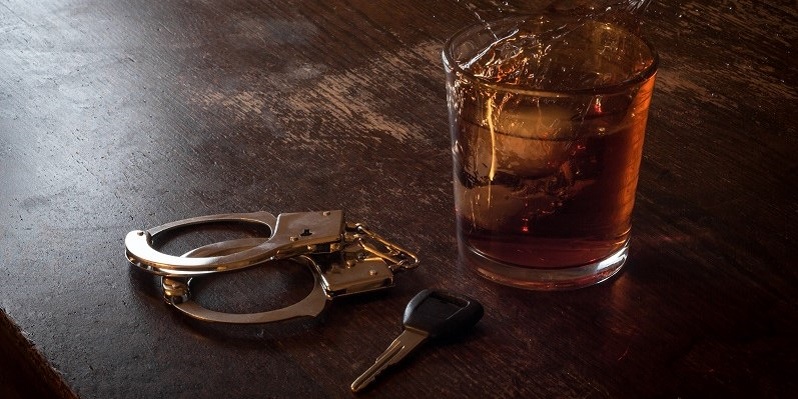DWI Attorney Dallas TX – When Does A DWI Become A Felony?
DWI is prohibited under Texas Penal Code Section 49.04, which states that it is unlawful. Depending on the circumstances, it might be classified as a misdemeanor or a felony. First-time offenders may be eligible for a reduced punishment. A lot of small infractions are just penalized. Driving while intoxicated in public is strictly banned by law. A criminal conviction will cost you far more than just the amount of money the judge fines you. If you are convicted of a crime or DWI, you may be subjected to social stigma for the rest of your life.


When Does Drunk Driving Become A Felony In Dallas?
When it comes to DWI penalties in Texas, the state is very tough. While first-time offenders may get a less severe punishment, many drunk driving arrestees are subjected to felony prosecution. And, as is often the case in legal situations, the answer is: it depends on the situation.
It is possible that your criminal past will influence whether you are charged with a misdemeanor or a felony. In actuality, two people who are arrested under the same circumstances may have quite different results from one another.
Is It A Misdemeanor Or A Felony In Dallas?
A misdemeanor is a type of offense that falls into the lower category. Misdemeanor offenses in Texas are less serious than felonies and do not carry obligatory prison terms. Many small violations are just fined.
In Texas, felonies are offenses that are punished by imprisonment in a state prison or jail. In Texas, felonies are offenses that are punished by imprisonment in a state prison or jail. In Texas, crimes are classified as either capital, first, second, or third-degree, or as state imprisonment, depending on the severity of the act.
Is Driving While Intoxicated (DWI) A Crime In Dallas?


Prosecutors may use this phrase to prove that you were under the influence of alcohol while driving. The prosecution will use evidence to demonstrate that you were not completely in control of your faculties in order to establish that you were not completely in control of your faculties. This includes smelling like alcohol or driving with an open container of alcohol in the car, for example.
If you refuse to submit to a breathalyzer test, you will be detained and charged with a crime. Response time and ocular nystagmus are among the characteristics measured in these exams. Many of these strategies can be either wrong or speculative in their nature. Examinations or exams that were administered incorrectly and resulted in a violation of your constitutional rights may be presented in court.
In order to prove that you have a blood alcohol concentration of 0.08 or above, the prosecution will utilize a breathalyzer or a blood test to determine your blood alcohol concentration. It is also possible to have inaccurate measurements of breath or blood.
No matter what happens, you should contact skilled defense attorneys from The Medlin Law Firm.
When driving in Dallas, what is the legal alcohol limit for drivers?
Your blood alcohol concentration (BAC) of.08 or above can be used by the state of Texas to prove that you were driving while intoxicated. The amount of alcohol detected in your system is determined by whether you give a breath, blood, or urine sample. According to the Texas Penal Code, the alcohol concentration should not exceed:
- 210 L of air;
- 100 mL of blood;
- 67 mL urine
If you are arrested for DWI and have a blood alcohol content (BAC) of.08 or more, you will be charged with DWI.
DWI In Dallas – First Offense
Your first Texas DWI arrest will almost certainly result in a Class B misdemeanor charge with a minimum 72-hour sentence unless you meet the qualifications that might elevate the charge to a higher misdemeanor or even a felony. If you are found to be in possession of an open container of alcoholic beverages at the time of your arrest, your prison term will be extended to six days.
A high BAC may also result in an increase in your expenses. If your blood alcohol content (BAC) was 0.15 or above when you were arrested, you will be charged with a Class A misdemeanor. If you have a high blood alcohol content (BAC) and a prior alcohol-related conviction, your penalties may be enhanced.
Can A First-Time DWI In Dallas Be Prosecuted As A Felony?
A Class B misdemeanor charge with a minimum 72-hour sentence will most certainly be filed against you if you are arrested for your first DWI in Texas unless you fulfill specific requirements. If you are caught with an open container of alcoholic beverages, your sentence will be increased to six days.
A high BAC may also result in an increase in costs. If your blood alcohol content (BAC) was 0.15 or above, you will be charged with a Class A misdemeanor. High blood alcohol content (BAC) and past alcohol-related crimes may result in harsher punishments.
What Is The Duration Of A DWI Conviction On My Record?
Prior DWI convictions are extremely important. If they are present, it might be the difference between acquittal and imprisonment. The majority of states do not handle all DWI convictions in the same manner. These states have a “lookback period,” after which any DWI convictions are not taken into consideration when determining what charges to bring against you in the future.
Texas, on the other hand, is one of nine states that does not have one. When you are arrested for DWI in Texas, the prosecution will go back over your whole life, even previous offenses that are decades old.
A Second DWI In Dallas
In Texas, a second DWI violation is classified as a Class A misdemeanor. It carries a 30-day minimum penalty and a maximum term of one year. It has a maximum punishment of $4,000, as well as other court and licensing expenses, among other consequences. If you are arrested for DWI for the second time and cause substantial harm or death to another person, you may face criminal charges. Your driving privileges may be revoked for a period of up to two years.
A Third DWI In Dallas
A third DWI conviction brings a mandatory two-year state prison sentence with a maximum ten-year sentence. You will also face a punishment of up to $10,000, as well as court costs and penalties, as well as the loss of your driving privileges. The court may require 600 hours of community service, the installation of an ignition interlock device, and the suspension of the driver’s license. In addition, you may be required to attend drug rehabilitation or a DWI Impact Panel. A DWI Impact Panel is a forum in which victims of drunk driving may express their sorrow and vent their anger.
A criminal conviction will cost you far more than just the amount of money the judge fines you. A felony conviction might result in you losing your job opportunity. If you are convicted, your housing options may be limited, as background checks are also required by a large number of landlords Other rights, such as the capacity to vote and the possession of firearms, will be taken away from you as well. If you are convicted of a crime or DWI, you may be subjected to social stigma for the rest of your life.
Probation For A Felony
The state of Texas allows for felony probation. However, while a third DWI conviction results in a required two-year prison term, it is possible to spend the majority of your time on probation instead. If you violate your plea agreement, you will only be sentenced to the full term of your sentence.
To be eligible for felony parole in Texas, you must have served at least 10 days in prison. Probation is often contingent on serving at least 30 days in prison, according to several district attorneys. This is dependent on the plea agreement reached between your attorney and the prosecution. The judge in your case will determine whether or not a plea bargain is permissible in your situation.
More Than Three DWI Convictions
DWI third offenses are defined as any charge of driving while intoxicated in Dallas following a third conviction. In Texas, a second DWI is considered a crime. It carries a sentence of 2-10 years in state prison as well as a maximum fine of $10,000. In the end, legal costs and driver’s license fees might easily outweigh the maximum fines.
The ramifications of additional DWI convictions, on the other hand, may become more severe with each additional Texas jail sentence. A second or subsequent DWI conviction brings a 2nd Degree felony sentence of two to twenty years in state prison, depending on the severity of the offense. If you’ve been to a Texas prison twice, you run the danger of spending 25 years to life in prison. As you can see, previous DWI convictions may have serious ramifications on one’s life.
Because of the significant repercussions of these allegations, it is critical that you retain the services of experienced legal counsel. The criminal defense attorneys at the Medlin Law Firm have decades of experience defending those accused of driving under the influence of alcohol or drugs.
(214) 888-4810 We cannot receive pictures via text so please send those via email or hand deliver to our office.
(214) 888-4810 No podemos recibir imágenes por mensaje de texto, así que envíelas por correo electrónico o entréguelas personalmente en nuestra oficina.






